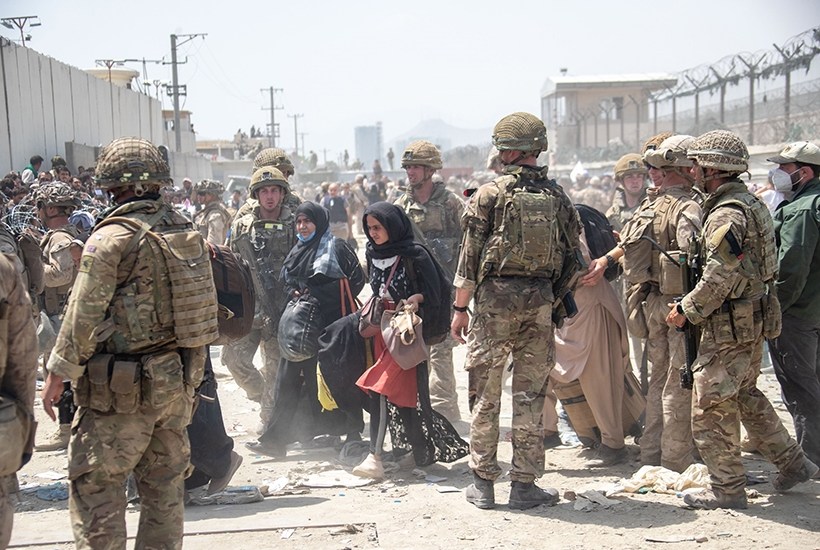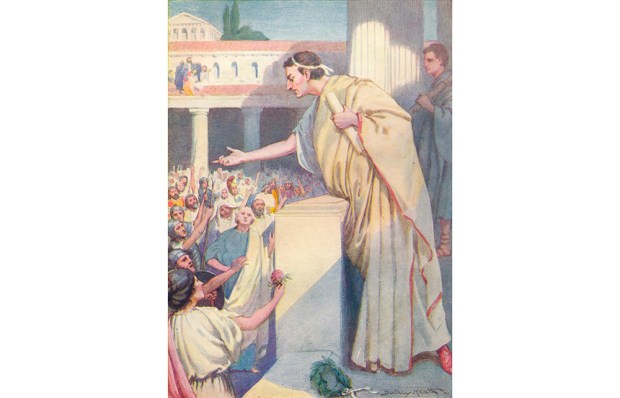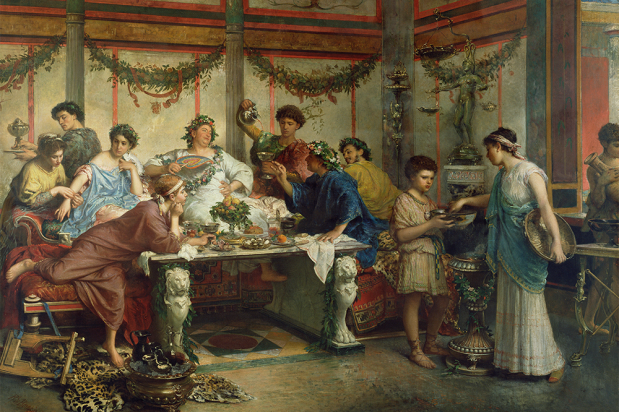‘No one is stupid enough to choose war over peace. In peace sons bury their fathers; in war, fathers bury their sons,’ said Croesus to his conqueror, Cyrus of Persia, according to Herodotus. But actually man’s stupidity has lasted thousands of years, and one rather doubts whether the fanatical Taliban will buck that doleful trend.
Romans were proud of their pax Romana, but it had been won in blood, over centuries, as they were well aware. ‘Who wishes for peace, let him prepare for war,’ said Vegetius. ‘Peace was secured by victories,’ boasted Augustus; Virgil talked of Rome ‘imposing the practice of peace’. Tacitus made the Caledonian leader Calgacus remark that Romans ‘make a desert and call it peace’.
So far, so Taliban. But the crucial point here is that Rome’s years of earlier military experience in conquering Italy were matched by their experience of turning enemies into allies. For only in that way could the peace hold.
They did this by offering a wide range of economic, social and political advantages, and made only two demands: that locals paid their taxes to Rome and acquiesced in Rome’s military operations. Apart from that, carry on as normal.
In other words, as far as possible, Rome had no intention of doing anything that would upset the hard-won pax Romana — which included eradicating banditry — once it was in place. So Pliny the Elder could confidently ask: ‘Who would not agree that, since globalisation has been established throughout the world by the greatness of the Roman empire, life has been improved by economic activity and partnership in festive peace?’
That peace was experienced by millions for long periods over the approximately 700 years of an empire stretching from Britain to Syria and the Rhine-Danube to North Africa. Lowland Britain for example, invaded by Claudius in AD 43 and finally abandoned in AD 410, experienced one popular but bloody rebellion (Boudicca, AD 60-61) but otherwise there was peace, unaffected by two failed political takeovers.
What greater blessing can there be than peace? What worse prospect for it than fanaticism?
Got something to add? Join the discussion and comment below.
Get 10 issues for just $10
Subscribe to The Spectator Australia today for the next 10 magazine issues, plus full online access, for just $10.
You might disagree with half of it, but you’ll enjoy reading all of it. Try your first month for free, then just $2 a week for the remainder of your first year.














Comments
Don't miss out
Join the conversation with other Spectator Australia readers. Subscribe to leave a comment.
SUBSCRIBEAlready a subscriber? Log in